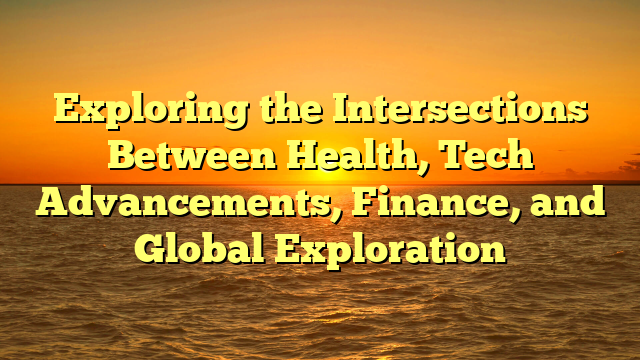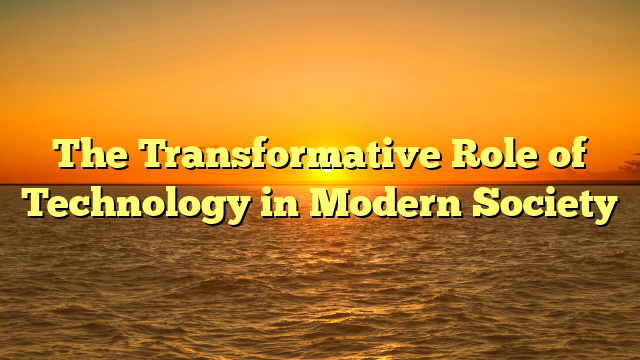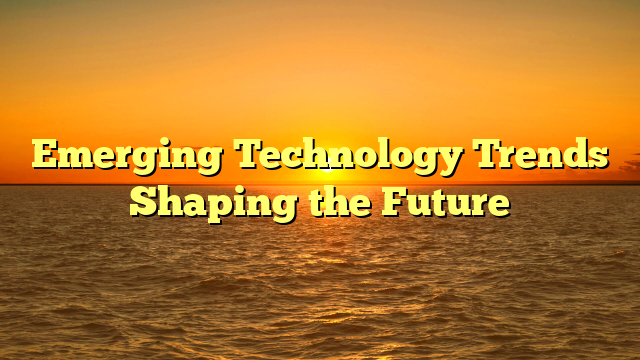
Exploring the Intersections Between Health, Tech Advancements, Finance, and Global Exploration
In today’s rapidly changing world, the integration of health, digital innovation, economic planning, and mobility is growing ever more significant. These 4 pillars are transforming the way we live, work, and connect with one another.
Modern Wellness Trends
The value of maintaining good health has reached new heights. With the rise of digital health tools, individuals are now able to analyze their vitals in real-time.
Smartwatches such as the Apple Watch or Fitbit deliver features like heart rate monitoring, step tracking, and sleep analysis. These gadgets empower users to take a proactive role in their own wellness journey.
Moreover, telehealth has transformed healthcare by allowing online consultations, especially useful during the COVID-19 pandemic. This accessibility reduces the need for in-person visits and saves both time and money.
The Digital Frontier
Technology has clearly changed every aspect of our lives. From AI assistants to blockchain and AI, the pace of advancement is impressive.
In the health sector, artificial intelligence is being used to predict diseases with astonishing accuracy. In finance, AI helps in fraud detection and algorithmic trading. In travel, apps like Google Maps or TripIt improve the journey experience.
One of the most promising developments is the use of distributed ledger technology for secure health and financial records. This ensures data integrity while reducing the risk of fraud.
Modern Financial Strategies
With the expansion of financial technology (fintech), economic planning has become more democratized. Apps like YNAB help users to track expenses more effectively, while platforms like Robinhood or eToro enable investing with little to no fees.
Cryptocurrency, while still volatile, represents a major innovation in how value is stored and transferred. Bitcoin and Ethereum, for example, are being increasingly utilized in various industries, including travel and e-commerce.
Moreover, digital wallets such as Apple Pay, Google Pay, and PayPal have revolutionized how consumers make purchases, making transactions more secure than ever before.
Travel in a Post-Pandemic World
The travel industry has seen massive changes in the last few years. While the pandemic halted international tourism, it also sparked a wave of innovation and new travel trends.
Hybrid offices has led to a rise in “workcations,” where people blend work and leisure in exotic locations. Countries like Portugal, Estonia, and Costa Rica now offer digital nomad visas, attracting tech-savvy travelers.
Sustainable travel is another critical trend. Tourists are more frequently choosing eco-friendly accommodations, minimizing their carbon footprint, and favoring local economies.
Technology also plays a key role in travel. From online booking to AI-powered travel planning, the experience is becoming more efficient. Even airport security is seeing upgrades with biometric check-ins and digital passports.
The Synergy of These Domains
What ties these four realms so powerful is how they overlap. For situs slot server luar negeri , a health-conscious traveler may use a smartwatch to track sleep while flying, pay for meals with crypto, and book trips via AI-assisted platforms—all of which tie together tech, finance, health, and travel.
Startups are also recognizing these overlaps and are developing integrated solutions. Imagine an app that not only tracks your physical activity and gives you health tips but also suggests travel destinations based on your health goals and helps finance the trip through micro-savings or crypto rewards.
This kind of interconnected thinking is shaping the future.
—
Final Thoughts
In a world where almost every aspect of life is being reshaped by technology, the intersection of health, finance, travel, and tech is creating innovative opportunities.
Keeping up of these changes can prepare individuals to make better choices, live healthier lives, travel smarter, and achieve financial goals more effectively.
The future is not just digital—it’s interconnected.



